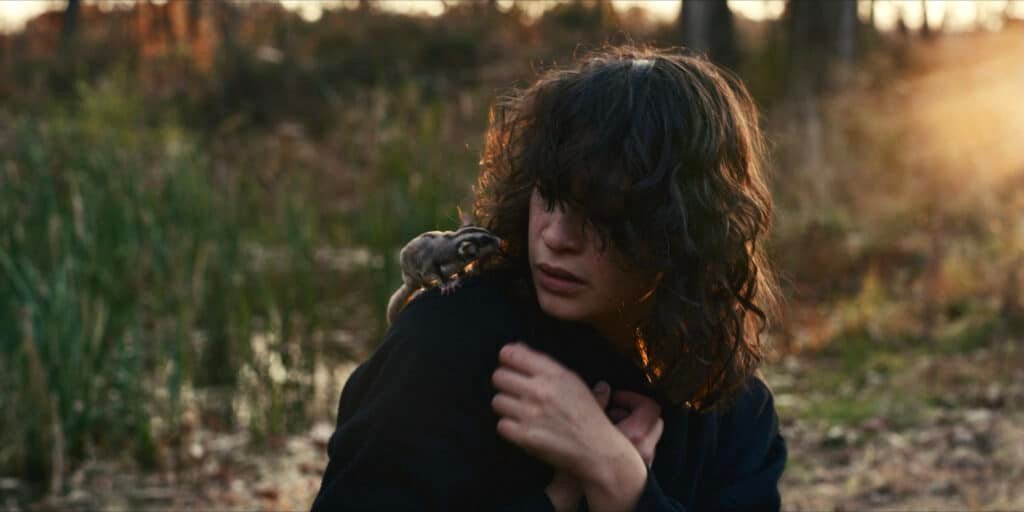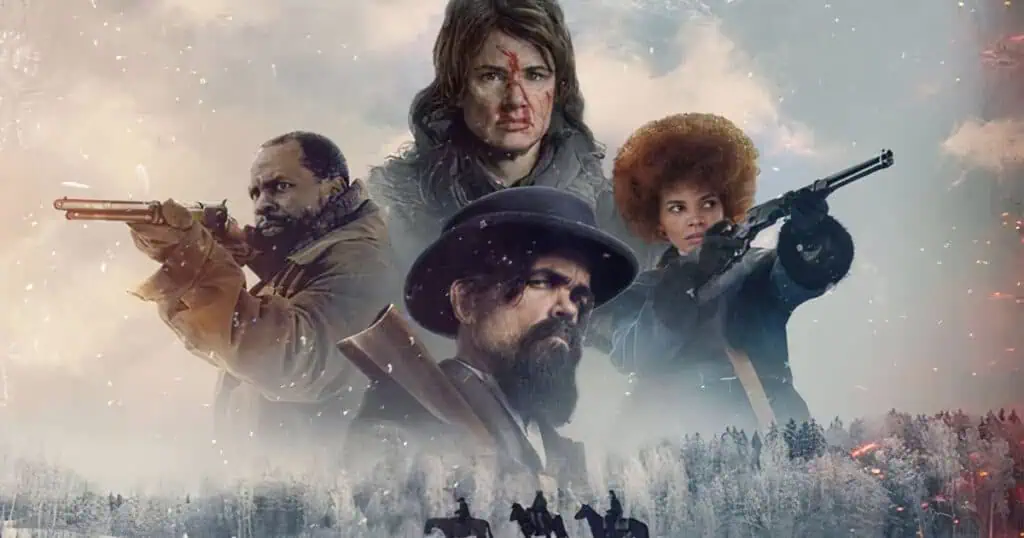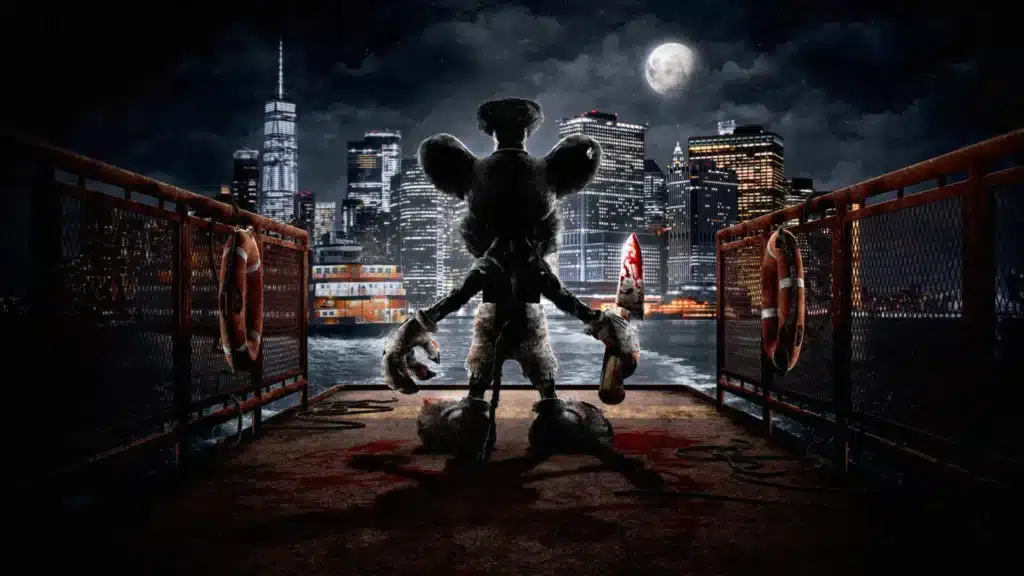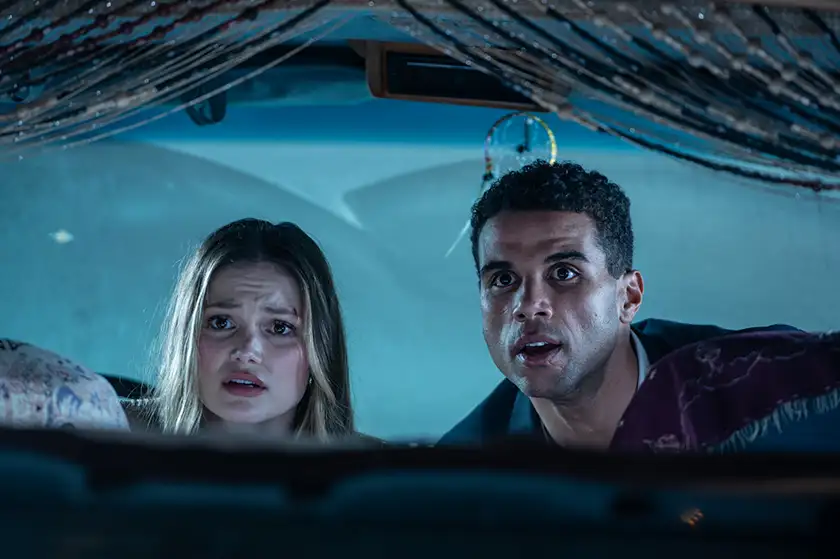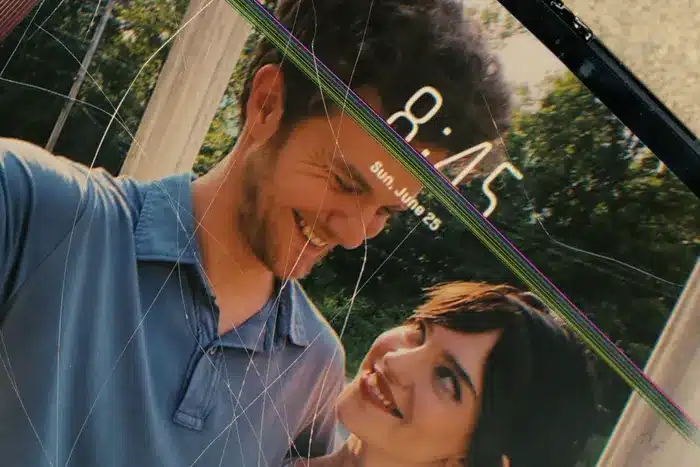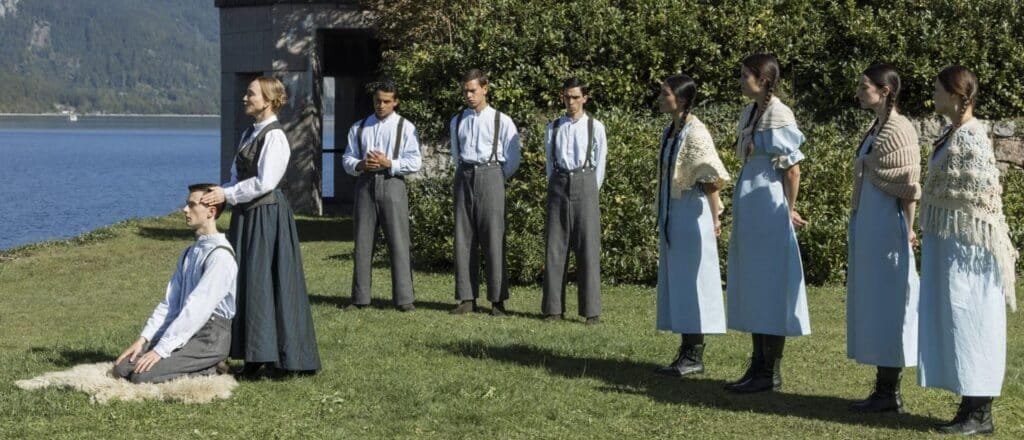
In the early moments of Dirty Boy, the voiceover of the main character of Isaac (Stan Steinbichler) informs the audience that “Your mind is a bus.” In Isaac’s case, it’s hard to tell who’s at the wheel at any one time, as he’s been raised to obey the strict teaching of a religious cult headed by the fearsome Walter Wentworth (Graham McTavish) and his wife Verity (Susie Porter). In addition, Isaac’s schizophrenia has led to him going off the range both figuratively and literally, leading to various periods of time in isolation to contemplate his actions.
Isaac believes he is becoming a burden to those around him and with frequent visits to the unorthodox Dr. Cronin (Olivia Chenery) at the First Rural Asylum For The Unfortunate doing little to help, he plots an escape. However, with a revelation that the cult may be about to frame him for a serious of ritualistic murders, is his best chance to destroy the whole thing from within and save their next potential victim?
Writer/director Doug Rao takes a familiar horror setting and immediately skews it, the unreliable narration keeping the viewer on their toes as to just what exactly is going on. Ostensibly, Isaac is the hero of the piece but we’re also fed information – sometimes by the Wentworths, sometimes by Isaac’s filter-free alter ego Frankie The Dragon – that our troubled protagonist has done some terrible things in his time, which makes it tricky for those attempting to identify a character for which to truly root.
The religious trappings also extend to the structure of the story, split into chapters with titles such as Genesis, and there are dire consequences to anyone who ignores Walter’s twisted rules as to what his flock shalt or shalt not do. It’s not a huge surprise to learn that the patriarch of the group is a wrong ‘un and his own predilections, justified by his own fervent belief that he has been chosen to grow his flock, both give the movie’s title an extra spin and push the proceedings into yet more disturbing territory. However, in those moments, Rao chooses to suggest rather than force the audience into an explicit endurance test, which is a welcome decision.
McTavish has described Dirty Boy as “the bastard offspring of The Sound Of Music” and he’s pretty much on the money, with the Wentworth clan enjoying a good old singalong in picturesque Austrian locations before forcing one of their number to drink an entire bottle of apple cider vinegar in order to cleanse their impure thoughts. As for Walter, he may not be on screen for the longest time but his deliberate delivery of dialogue and unnerving calmness is one of the film’s strongest suits.
As the lead, Steinbichler has to get to grips with an extremely complex character whose outward sweetness and awkwardness conceals a heart of darkness – or does it? It’s a bold performance and he handles both the dramatic and the queasily comedic which a surefootedness that consistently engages. Isaac may not be a role model, but there’s an empathy inherent in his plight and there’s a fascination as to how he’s going to react next, honourably or otherwise.
As a parable of how evil is allowed to run rampant under the cover of religion, Dirty Boy isn’t unique in that field, but Rao’s visual flair and a knack for the unsettling lift it above the norm. If anything, there are too many ideas struggling for space and Isaac’s one ally Hope (see what they did there?), played by an excellent but underused Honor Gillies, is almost lost in the shuffle but it’s the overarching ambition and the refusal to allow the viewer time to breathe which impresses.
The shifts into the darkest of humour may be too extreme for some and the main Chenery/Steinbichler vignette could easily be a glimpse into a totally separate movie, but the parameters of this very weird world are able to bend without breaking. This is also evident in the climax which, although opting for a more recognisable type of resolution, heads off somewhere else and casually drops in a final, amusingly disturbing kicker. Dirty Boy may not always land correctly, but it takes a number of pleasingly big jumps and Doug Rao is definitely one to keep an eye on.
Dirty Boy (2024) featured at this year’s Raindance Film Festival.


